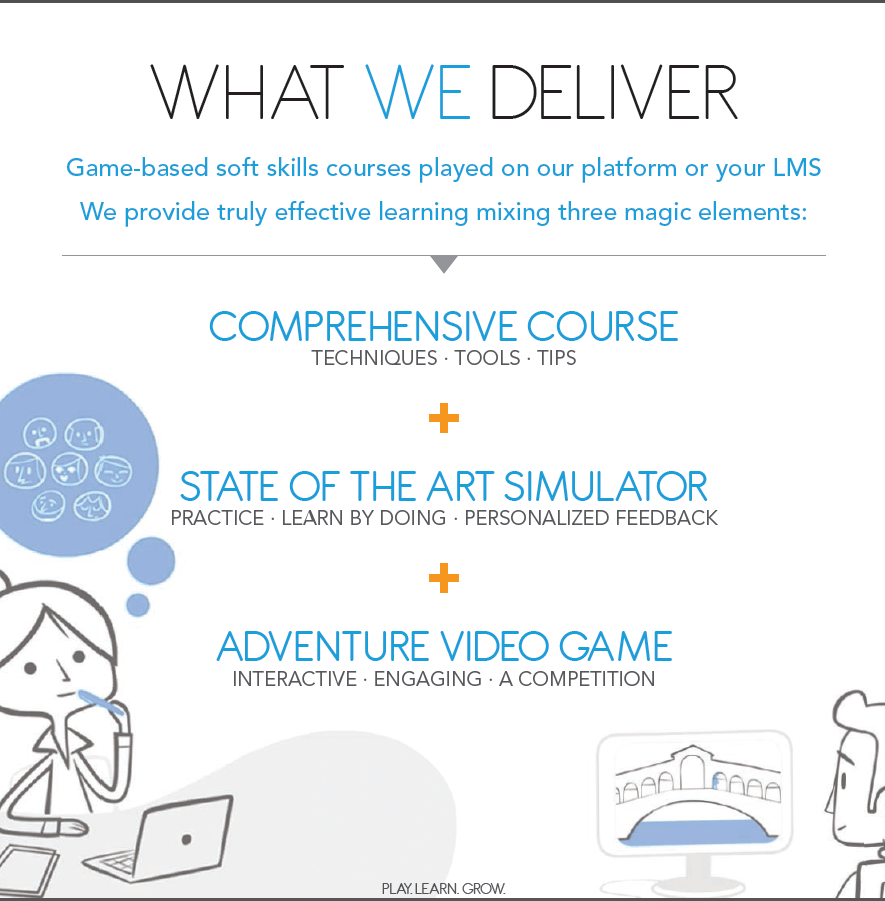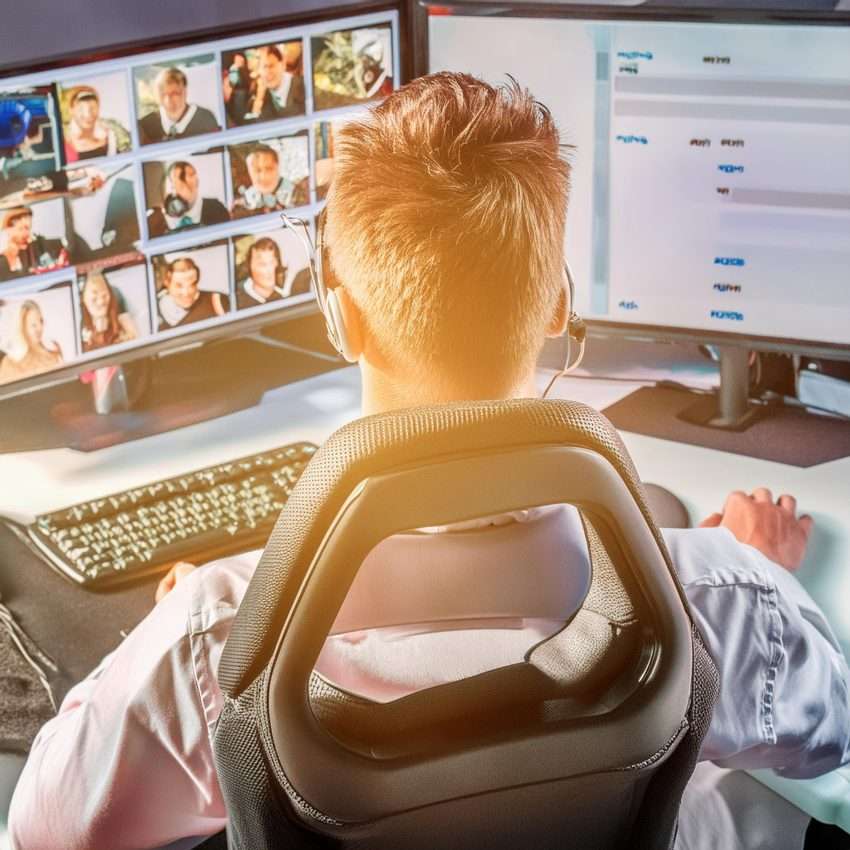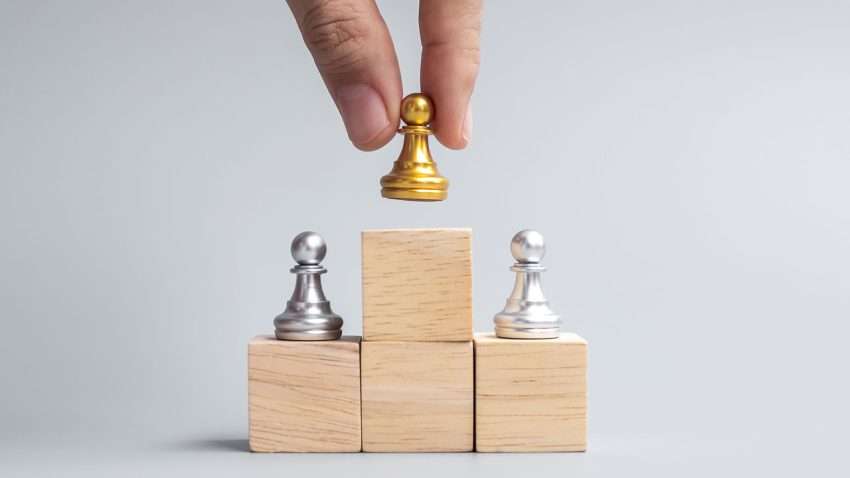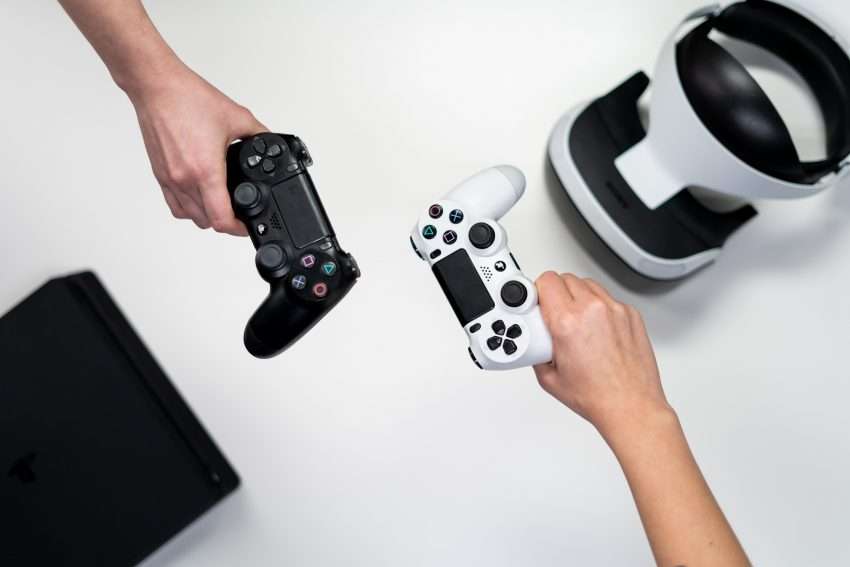Serious games or educational games, are games designed for a primary purpose other than pure entertainment. Originally serious games were designed for technical skills development, in sectors like medicine, military or aviation.
The use of serious games in corporate training is relatively recent, however it is forecasted to be one of the fastest growing sectors of the training industry. Well-designed serious (educational) games make learning fun, challenging and rewarding. Learners don’t realize they are learning when engaged in a game.
Serious games are used to train adults in a variety of subjects. Despite the fact that it is a relatively new term in the training industry, the results have already been very positive. Serious games enhance knowledge acquisition and skills development by introducing the learner to different situations, challenges and problems and therefore makes it possible to learning to occur.
In the context of a video game, serious games are the result of the use of a game-based methodology in a video game format. Serious games through video games create real situations in a virtual world so skills can be trained in a zero risk and secure environment.
The use of serious games in corporate training is increasingly focused on soft skills training. Soft skills have to be practiced in order to improve or be developed; there is no way of learning soft skills if they are not practiced. In corporate training, soft skills development are an especially important and complex area.
Before the development of serious games, classroom training was the only way to develop soft skills since traditional e-learning and its reliance on one way slide shows and videos was too theoretical, lacked the necessary interaction to train employees in skills like communication, leadership, negotiation, which require require practice to develop.





